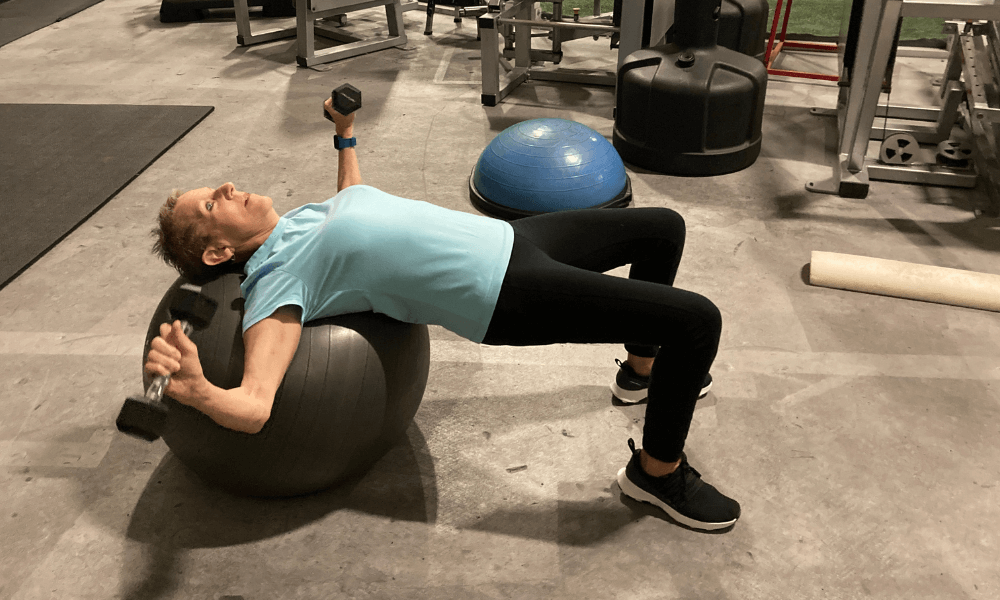The journey through diagnosis and treatment is undoubtedly stressful, and filled with moments of fear and uncertainty. While the end of treatment is a cause for celebration, many survivors find themselves grappling with a new set of emotions. That’s why the need for support doesn’t end after cancer treatment.
Research shows that cancer survivors are more likely to experience anxiety and distress than their healthy counterparts. The fear of recurrence is a common concern, and worries about finances, body image changes, and managing long-term health needs can also add to the mental burden.
It’s important to remember that these fears are valid and that you’re not alone. At Survivor Fitness, we’ve witnessed this firsthand throughout our years of working with hundreds of cancer survivors on their recovery journeys. It is also why we’re passionate about incorporating mental health support as a key pillar of one of our programs. In this blog post, we aimed to equip cancer survivors with practical strategies for navigating and overcoming cancer-related anxiety.
What To Do When Cancer-Related Anxiety Shows Up
Here are some strategies to empower yourself and navigate cancer-related anxiety with resilience:
1. Acknowledge Your Emotions
Don’t shy away from negative feelings like fear and anxiety. Naming them is the first step to managing them. Talking about your feelings with a trusted friend, family member, or therapist can help you understand the root cause and develop healthy coping mechanisms. Remember, these emotions are a normal part of survivorship.
2. Don’t Dismiss Your Fears
Telling yourself not to worry won’t make the anxiety disappear. Instead, accept that fear might arise at times and focus on strategies to manage it. For example, “scanxiety” before follow-up imaging is perfectly normal. Acknowledge it, and have some calming techniques ready.
3. Seek Support
You are not alone in this. Find people who can help you navigate life after treatment, just like the specialists who guided you during your diagnosis and treatment. There are therapists and counselors specializing in cancer survivorship who can equip you with powerful coping strategies. Consider joining a support group for cancer survivors. A group of people with shared experiences can be incredibly comforting and empowering.
4. Try Therapy
It can be helpful to talk about your experience and equip yourself with new tools to manage your cancer-related anxiety. A therapist specializing in cancer survivorship can be a game-changer. They can help you process your emotions, develop coping mechanisms for specific anxieties, and address concerns related to recurrence, body image, and more.
5. Cultivate Mindfulness and Meditation
Mindfulness practices like meditation can significantly reduce anxiety and improve your overall mental well-being. Apps like Headspace and Calm offer guided meditations specifically designed to manage anxiety and stress.
6. Maintain Regular Medical Follow-Ups
Sticking to your scheduled check-ups and screenings can provide a sense of reassurance and early detection of any potential issues. Having a clear follow-up plan with your healthcare team can significantly reduce anxieties about recurrence.
7. Embrace Healthy Lifestyle Choices
Nourish your body with balanced nutrition, prioritize regular exercise, and try to get quality sleep. These healthy habits contribute to your overall well-being and can lessen anxiety about recurrence.
8. Connect with Loved Ones
Open communication about your anxieties and needs fosters understanding and strengthens your support system. Lean on your close network of family and friends. Recognize that they still want to support you, and be willing to share where you are and what you need.
9. Discover New Passions
Engaging in hobbies you enjoy provides a healthy distraction from anxiety and enhances your quality of life. Now might also be the time to discover new hobbies. Creative outlets like art, music, or gardening can be particularly therapeutic.
Survivor Fitness: Your Path to Thriving
At Survivor Fitness, we understand the unique challenges faced by cancer survivors post-treatment. We offer comprehensive programs designed to be a cornerstone of your support system, encompassing your entire well-being.
Our programs feature personalized 1-on-1 training to help you regain strength and confidence, nutritional coaching to optimize your health, and mental health support to address any emotional hurdles you might encounter.
If you’re looking for a program designed specifically for cancer survivors, we encourage you to learn more about Survivor Fitness and the supportive community we’ve built. Together, we can empower your mind and help you thrive on your journey after diagnosis and treatment.


